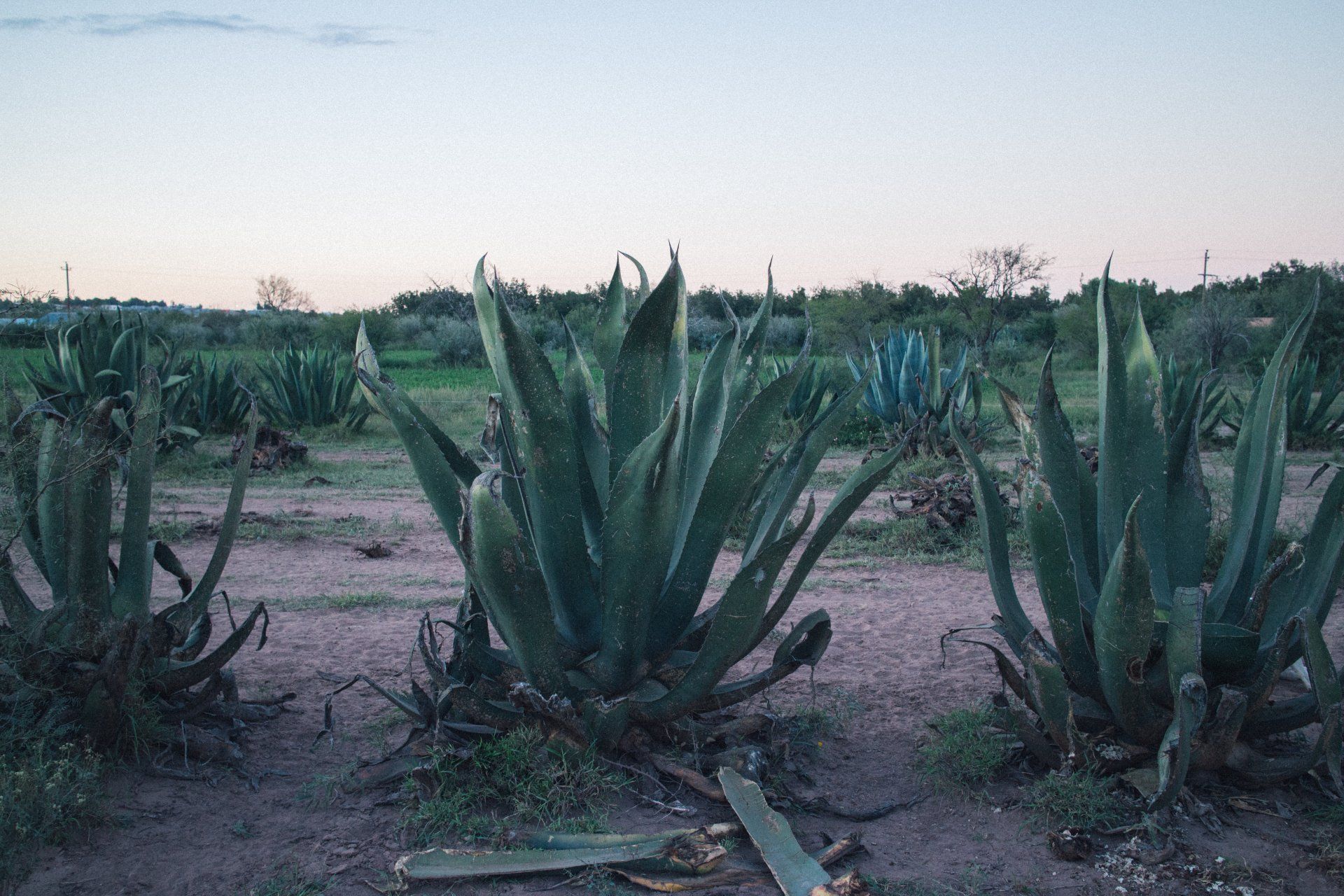A Guide To The Difference Between Mezcal & Tequila
by Francisco Rodriguez November 9, 2023
The Agave Connection
At first glance, Mezcal and Tequila may seem interchangeable, both being derived from the agave plant. However, it's crucial to understand that while all Tequila is Mezcal, not all Mezcal is Tequila. Confused? Let's unravel this intriguing web of agave spirits.

1. Agave Variety
TEQUILA: Produced exclusively from the blue agave (Agave tequilana), Tequila is a regional spirit with its own distinct identity. The blue agave, known for its sweet and herbaceous notes, thrives in the volcanic soils of Jalisco and a few other designated regions in Mexico.
MEZCAL: Embracing a broader spectrum, Mezcal can be crafted from various agave species, each contributing unique flavors to the final product. Common varieties include Espadín, Tobalá, and Tobaziche, offering a diverse range of taste experiences.
TERROIR AND PRODUCTION
The geographical and environmental factors play a significant role in shaping the character of Mezcal and Tequila. From the agave fields to the distillation process, let's delve into the nuances.
2. AGAVE HARVESTING
TEQUILA: Blue agave is typically harvested at around 8-12 years of age. The heart of the plant, called the piña, is extracted and roasted to convert its starches into fermentable sugars.
MEZCAL: The harvesting age can vary depending on the agave species, ranging from 7 to 30 years. Traditional Mezcal production involves roasting the piñas in earthen pits lined with lava rocks and agave leaves, imparting a distinct smokiness to the spirit
3.ROASTING TECHNIQUES
TEQUILA: Modern Tequila production often employs industrial ovens or autoclaves for roasting, resulting in a cleaner, more uniform flavor profile.
MEZCAL: Embracing tradition, Mezcal producers utilize earthen pits filled with wood and charcoal, covered with agave leaves and soil. This underground roasting imparts a characteristic smokiness, known as the "mezcalero" or "smoky" flavor.
DISTILLATION AND FLAVOR PROFILES
The art of distillation further sets Mezcal and Tequila apart, giving each spirit its distinctive taste and aroma
1. DISTILLATION
TEQUILA: Typically distilled twice in pot stills, Tequila aims for a smoother and more approachable profile. Some premium Tequilas may undergo additional distillations for added refinement.
MEZCAL: Crafted with a more rustic approach, Mezcal is often distilled in small, traditional clay or copper pot stills. The resulting spirit retains more of the agave's natural flavors, creating a bold and diverse palate.
2. FLAVOR PROFILES
TEQUILA: Exhibiting a wide range of flavors, Tequila can be sweet, fruity, and peppery, with some expressions showcasing hints of vanilla and citrus.
MEZCAL: The distinctive smokiness sets Mezcal apart, but beyond that, the flavor spectrum is vast. From earthy and herbaceous to floral and fruity, Mezcal offers a complex and adventurous tasting experience.
CULTURAL SIGNIFICANCE
Both Mezcal and Tequila are deeply ingrained in Mexican culture, with unique rituals and traditions associated with their consumption.
1. RITUAL AND TRADITIONS
TEQUILA: Often associated with celebrations and parties, Tequila is popularly consumed through shots or in cocktails like the Margarita.
MEZCAL: Enjoyed more contemplatively, Mezcal is sipped neat, allowing the drinker to savor the intricate flavors. Traditional ceremonies often accompany the consumption of Mezcal, emphasizing its cultural and spiritual significance
In the realm of agave spirits, Mezcal and Tequila stand as pillars of Mexican craftsmanship and tradition. While both share a connection to the agave plant, their distinct production methods, flavor profiles, and cultural roles create a fascinating tapestry of diversity. Whether you find yourself drawn to the refined elegance of Tequila or the bold complexity of Mezcal, exploring these spirits is a journey into the heart and soul of Mexico. Cheers to the agave adventure!



